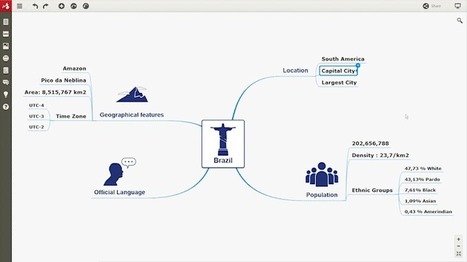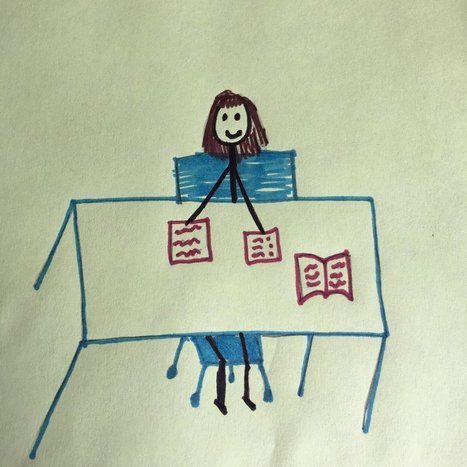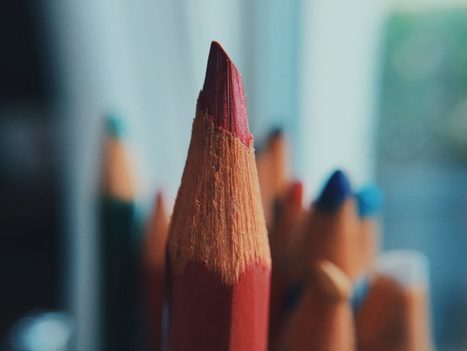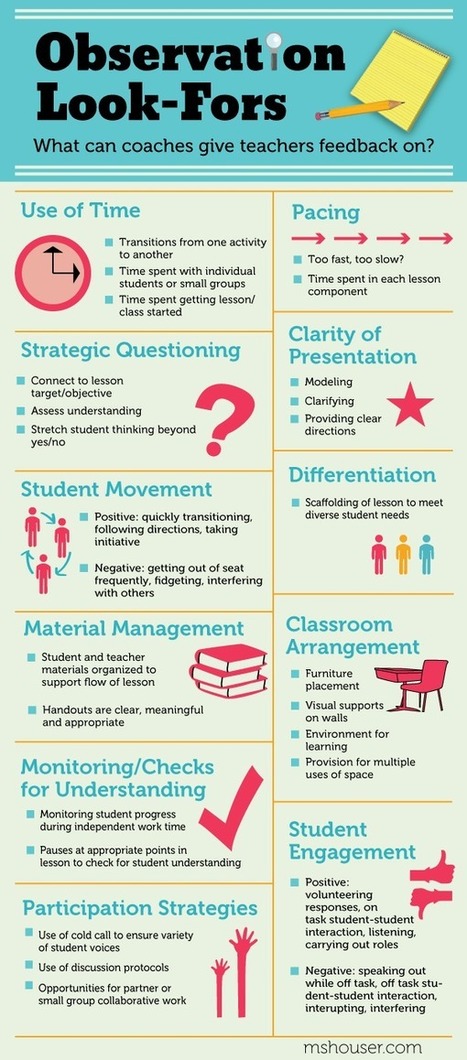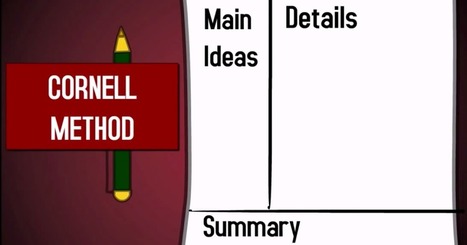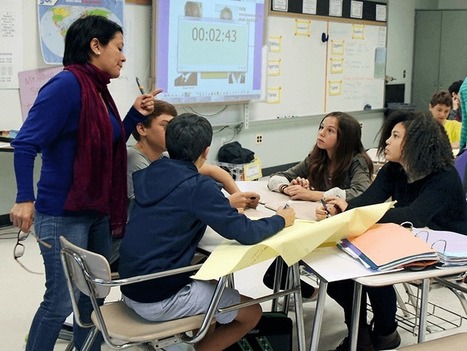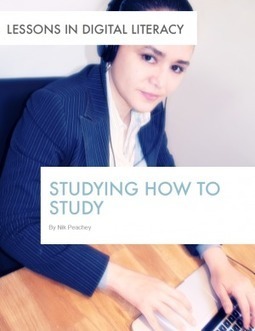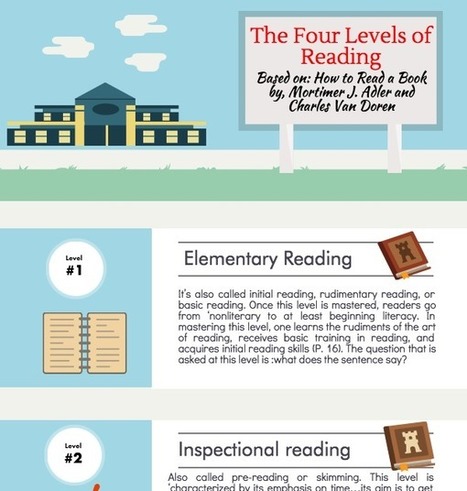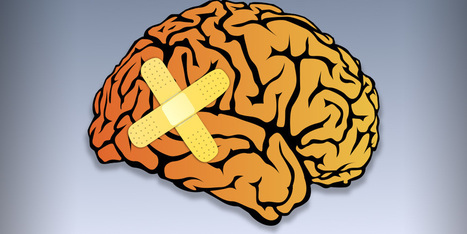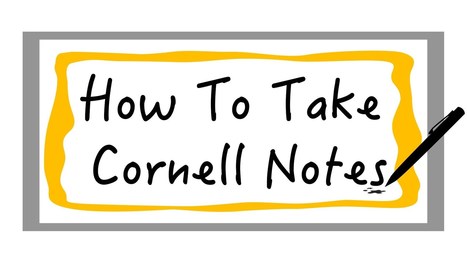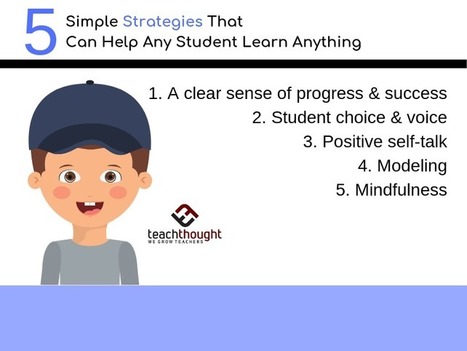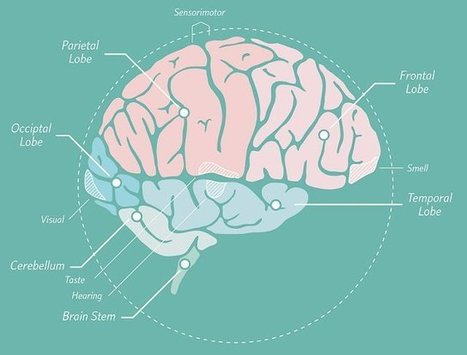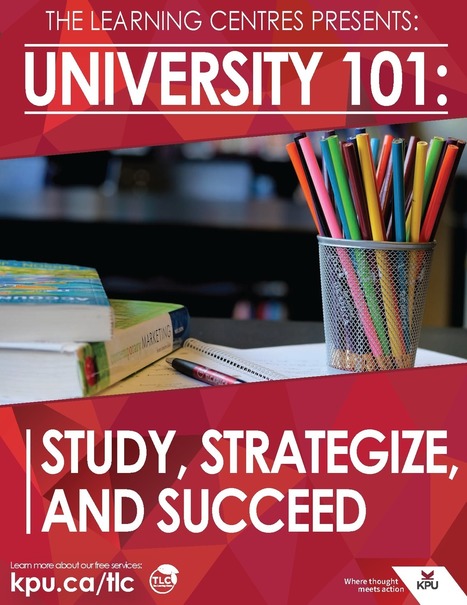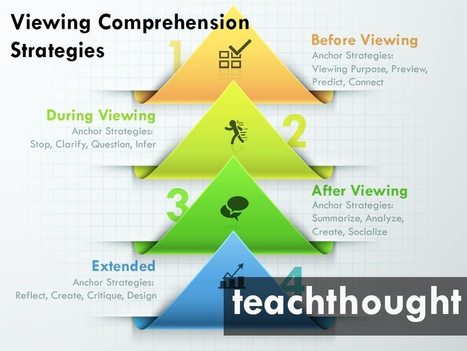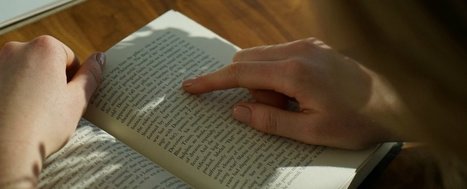 Your new post is loading...
 Your new post is loading...
Plagiarism is concerning for colleges and universities (Curtis & Vardanega, 2016). Students begin higher education with varying degrees of knowledge on the topic of plagiarism; sometimes students have a limited understanding of the behaviors that constitute plagiarism. Gourlay and Deane (2012) suggest “a proportion of plagiarism is committed via confusion over how to integrate and reference source materials into academic writing” (p. 19). Moreover, some students might be unfamiliar regarding when they can claim an opinion as their own and when they need to use a citation (Ballantine & McCourt Larres, 2010). Being unfamiliar with the behaviors that constitute plagiarism might be a reason why students engage in this type of academic misconduct (Insley, 2011).
A study finds that even short breaks help you solidify new learning.
In a way, learning really only happens during your breaks.
For the most effective learning sessions, build-in short rest periods.
It's been believed for some time that resting, ideally sleeping, after learning something new helps you lock in your newly acquired knowledge.
Mind mapping requires students to explore information and decide what's important and how it connects with what they already know. This is how they develop their critical thinking. Easy-to-create and share mind maps, concept maps, task maps and outlines. Mind mapping software for Web, Desktop, iOS and Android. Mind map with us for free!
Psychological Science in the Public Interest evaluated ten techniques for improving learning, ranging from mnemonics to highlighting and came to some surprising conclusions.
As a professor of cognitive psychology, I teach about memory, especially about when and why our memories often fail us. Students are excited to apply this material to their everyday lives.
The purpose of today’s post is to give students a resource to help them take charge of their own learning. We’re going to do a series of these over the next few weeks; today’s post is about retrieval practice – a useful method for studying any material that you’d like to remember in the future.
What is retrieval practice?
Learning does not start and stop with the training session. You have to take care of all the stages of learning transfer: before, during, and after training.
Via EDTECH@UTRGV
Highlighting and rereading text are some of the least effective study techniques, according to research. Students should try these approaches instead..
Given the opportunity to take notes by hand or on the computer, most students choose the latter. After all, modern technology offers plenty of benefits for writers.
The digital writing workspace is convenient for several reasons. A single laptop or tablet can hold all the books and materials a student needs. It can also contain tools for research, entertainment activities, and curated music. The tech devices make learning more accessible. With the push of a button or a tap on a screen, students can activate engaging learning experiences, or they can record lectures.
Convenience, however, doesn’t trump old-fashioned writing by hand when it comes to learning. Writing by hand has benefits that technology has not been able to reproduce – yet.
Wouldn't you be interested in finding out all those useful Tips To Improve Your Learning in just an infographic? Read this very useful and informative infographic that provides you with all those most important memory Tips To Improve Your Learning and start practicing today.
In a fast-paced world where information travels at the speed of light, note taking skills can make all the difference between effective and ineffective learning. Students can perform way better if they master the art of note taking. In this regard, I am sharing with you this wonderful note taking workshop prepared by Learning Commons which features the 6 important note taking skills students need to develop together with the different methods of taking notes and concluding with the five Rs.
15 Reflection Strategies To Help Students Retain What You Just Taught Them by Terry Heick Reflection is a natural part of learning. We all think about new experiences–the camping on the car ride home, the mistakes made in a game, or the emotions felt while finishing a long-term project that’s taken months to complete. Below …
Via Ana Cristina Pratas
In this lesson students will learn about some of the factors that influence successful study. They will evaluate their existing study skills in the light of information from an infographic and do some online research into effective study techniques.
Via Nik Peachey
|
The unfortunate fact is that few of us ever really come to grips with what it means to study, apart from sitting by oneself with a textbook for hours on end. Despite its obvious inefficiency as a learning method, we’ve all found ourselves doing that kind of “studying” at one time or another. Having taught psychology classes for 40 years, Pierce College professor Marty Lobdell has seen thousands of students laboring, indeed suffering, under similar studying-related assumptions, and in his 8.7-million-times-viewed talk “Study Less, Study Smart,” he sets out to correct them. He has also dispensed his wisdom in a book by the same title.
How to Read a Book by Mortimer J. Adler and Charles Van Doren is one of the most celebrated classic works in the reading literature. It was first published in 1940 and then revisited and updated in an edition that was released in 1972. Since its publication millions of copies have been sold and is still widely circulating among education circles as a required reading text. It’s true that the book was conceived in a ‘pre-digital’ era but its content is still relevant even now that the digital text is predominantly prevalent.
At one time or another we have all engaged in poor thinking habits. After all, nobody’s perfect and neither is anybody’s thinking. However, that doesn’t mean we can’t get better at it and start thinking more critically. It’s worth our time to seek ways of improving our thinking and to guide our learners to do the same. Poor thinking habits refer to the ways of thinking that produce adverse effects in every part of our lives. They can negatively affect our personal progress, our relationships, and everyone around us. But they do much more than that, actually. Not only do they affect the outside world, but they do damage from within as well. In the long run poor thinking can affect our self-esteem, our ability to cope with challenges, and even our physical health.
While students may be engaged in class and making visible, positive progress, they may still feel at a loss when it comes to preparing for exams and final assessments. Teachers can give them plenty of tips and advice but when one is on their own, that's when the doubts and questions often take over.
How should you take notes in class? Like so many students who came before me and would come after, I had little idea in college and even less in high school. The inherently ambiguous nature of the note-taking task has inspired a variety of methods and systems, few of them as respected as Cornell Notes.
Empowered with some basic information about how the mind and brain work during learning, teachers can plan to use some new strategies for supporting high student achievement.
Through the years we have facilitated the use of brain-based strategies that help foster growth mindsets through the internalization of learning successes, individual choice, positive self-talk, and teacher modeling. Teachers tell us that using these teacher-friendly tools can jumpstart the learning process early in the year.
We’ve all heard about memory strategies like spaced repetition and retrieval practice, but what else is there? Actually, neuroscientists are discovering some pretty exciting things about the way memory works, and as always, we’re here to share their research with you. Here are five ways to improve your memory based on the latest findings:
In this work, we determined, the level of incidence of the use of technologies on academic success and the incidence of interaction and experience on the level of plagiarism of university students. A sample of 10,952 students from 31 face-to-face universities in Ecuador was created. Students were classified based on their experience level, level of interaction with teachers and classmates, and the use they do with technology for academic activities. The results showed that the level of experience does not affect academic success, but does have an incidence on plagiarism levels that increase as this experience increases. Plagiarism reaches higher levels when level of experience, family income and hours of connection per day increases. Academic performance depends on the number of hours that students seek information and the number of academic videos they watch. Also, plagiarism tends to decrease as the student makes better use of technology for their academic activities.
University 101: Study Strategize Succeed helps you to create a foundation for post-secondary studies by learning how to learn. By taking the time to read this book and work through the exercises included, you are investing in the skills that will support you in all of your classes and future learning. Successful students share a set of skills and habits in common. The good news is that these skills are not a secret; anyone can learn the skills that support successful learning. By taking some time to learn proven study strategies, you will be able to reach your learning goals, and avoid the pitfalls that can take you off-track.
There’s plenty of good research on study strategies that promote learning. It’s also well-documented that students don’t always use them. As most of us are well aware, procrastination gets in the way of learning. Cramming ends up being mostly a shoveling exercise—digging up details and dropping them into short term-memory. But there’s also evidence that students don’t know that some strategies do more for learning than others. And guess what? Neither do some faculty.
You can’t watch a video like you read a book; the modalities couldn’t be much more different.
On the surface level a video uses light, color, sound, and moving images, with the potential for adding text and shape and color and light filters as overlays to communicate ideas, while the most basic text structures use alphanumeric symbols, paragraph and sentence structure, and an assortment of text features (e.g., white space, headings and subheadings, fonts, etc.) to convey their message.
Kids can and should practice the skill of learning if they want a fighting chance at fulfilling all those lofty goals their parents set for them. But some people keep studying - and thinking - the same way all their lives without improving their methods.
Thankfully, cognitive science has taken a look at how people actually learn, and the results are surprising and super helpful.
|





 Your new post is loading...
Your new post is loading...



